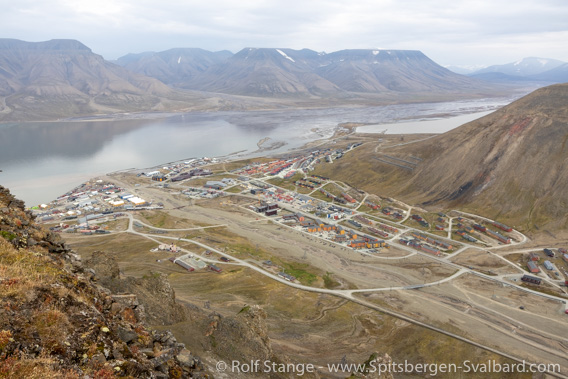-
current
recommendations- Liefdefjord
New page dedicated to one of Spitsbergen's most beautiful fjords. Background information and many photos.
- New Spitsbergen guidebook
The new edition of my Spitsbergen guidebook is out and available now!
- Liefdefjord
New page dedicated to one of Spitsbergen's most beautiful fjords. Background information and many photos.
Page Structure
-
Spitsbergen-News
- Select Month
- May 2025
- April 2025
- March 2025
- February 2025
- January 2025
- December 2024
- November 2024
- October 2024
- September 2024
- August 2024
- July 2024
- June 2024
- May 2024
- April 2024
- March 2024
- February 2024
- January 2024
- December 2023
- November 2023
- October 2023
- September 2023
- August 2023
- July 2023
- June 2023
- May 2023
- April 2023
- March 2023
- February 2023
- January 2023
- December 2022
- November 2022
- October 2022
- September 2022
- August 2022
- July 2022
- June 2022
- May 2022
- April 2022
- March 2022
- February 2022
- January 2022
- December 2021
- November 2021
- October 2021
- September 2021
- August 2021
- July 2021
- June 2021
- May 2021
- April 2021
- March 2021
- February 2021
- January 2021
- December 2020
- November 2020
- October 2020
- September 2020
- August 2020
- July 2020
- June 2020
- May 2020
- April 2020
- March 2020
- February 2020
- January 2020
- December 2019
- November 2019
- October 2019
- September 2019
- August 2019
- July 2019
- June 2019
- May 2019
- April 2019
- March 2019
- February 2019
- January 2019
- December 2018
- November 2018
- October 2018
- September 2018
- August 2018
- July 2018
- June 2018
- May 2018
- April 2018
- March 2018
- February 2018
- January 2018
- December 2017
- November 2017
- October 2017
- September 2017
- August 2017
- July 2017
- June 2017
- May 2017
- April 2017
- March 2017
- February 2017
- January 2017
- December 2016
- November 2016
- October 2016
- September 2016
- August 2016
- July 2016
- June 2016
- May 2016
- April 2016
- March 2016
- February 2016
- January 2016
- December 2015
- November 2015
- October 2015
- September 2015
- August 2015
- July 2015
- June 2015
- May 2015
- April 2015
- March 2015
- February 2015
- January 2015
- December 2014
- November 2014
- October 2014
- September 2014
- August 2014
- July 2014
- June 2014
- May 2014
- April 2014
- March 2014
- February 2014
- January 2014
- December 2013
- November 2013
- October 2013
- September 2013
- August 2013
- July 2013
- June 2013
- May 2013
- April 2013
- March 2013
- February 2013
- January 2013
- December 2012
- November 2012
- October 2012
- September 2012
- August 2012
- July 2012
- June 2012
- May 2012
- April 2012
- March 2012
- February 2012
- January 2012
- December 2011
- November 2011
- October 2011
- September 2011
- August 2011
- May 2011
- April 2011
- March 2011
- February 2011
- January 2011
- December 2010
- November 2010
- September 2010
- August 2010
- July 2010
- June 2010
- May 2010
- April 2010
- March 2010
- February 2010
- November 2009
- October 2009
- August 2009
- July 2009
- June 2009
- May 2009
- April 2009
- March 2009
- February 2009
- January 2009
- December 2008
- November 2008
- October 2008
- August 2008
- July 2008
- June 2008
- May 2008
- April 2008
- March 2008
- February 2008
- April 2000
- Select Month
-
weather information
-
Newsletter

| Guidebook: Spitsbergen-Svalbard |
Home →
Daily Archives: 25. June 2021 − News & Stories
Norwegian government plans to denude non-Norwegian inhabitants of Longyearbyen of their right to vote
This is a remarkable procedure within a frame of politics that may on occasions well be described as nationalistic: The Norwegian ministry of justice has proposed to remove the right to vote or to be elected from non-Norwegian citizens in Longyearbyen unless they have lived at least three years in mainland Norway.
The background: Local democracy in Longyearbyen
A few words about the background: Spitsbergen is, in accordance with the Spitsbergen Treaty, not organised in a democratic way. The Sysselmannen is not elected but appointed by the government. On a community level, all of Spitsbergen’s settlements were founded by mining companies and run by these companies as company towns for most or all of their history. The introduction of democratic elements has been discussed on a number of occasions in the 20th century, but took shape not before the 1990s and a town council (Longyearbyen Lokalstyre, LL) was established in 2002. Only Longyearbyen has a council, the other settlements in Spitsbergen are still organised as company towns without a democratic structure.
Longyearbyen Lokalystre, led by a mayor (here: lokalstyreleder), is so far elected locally by all inhabitants who have been registered for a certain minimum period regardless of their nationality. This is what the government in Oslo wants to change.
Near 3000 people are registered inhabitants of Spitsbergen’s settlements, with a majority near 2500 in Longyearbyen. Of the total number, more than 900 have a nationality other than Norwegian. A large proportion of Longyearbyen’s population is thus of other than Norwegian nationality. Nationalities in Longyearbyen include Thai people, Swedes and Danes, Russian, Germans, UK and US citizens and many others.
Right to vote and to be elected to be removed from non-Norwegians
A recent proposal from the Norwegian ministry of justice suggests to remove the right to vote and to be elected to be removed from non-Norwegians unless they have been registered in a Norwegian mainland community for at least three years, a condition met by very few of the many hundred “foreigners” living in Longyearbyen.

Longyearbyen is a community with a very international population, but soon possibly with a much reduced level of democracy.
The background lies within general Norwegian Svalbard politics, which aim at developing Longyearbyen as a Norwegian community. This does not necessarily mean an entirely Norwegian population, as is also highlighted by undersecretary of state Lars Jacob Hiim of the ministry of justice in this context. According to Hiim, the proposal in question does not aim at changing Longyearbyen’s population structure, but is to ensure amongst others that voters and their elected representatives have knowledge about “aims and frame conditions of (Norwegian) Svalbard politics”.
Local rejection
Mayor Arild Olsen declared himself fully taken by surprise by this proposal, as Olsen told Svalbardposten. Neither he nor the local council had been involved or informed before the recent publication of the proposal, which Olsen strongly rejects.
Comment
Locally, the proposal is recected not only by Olsen, but also by many others. Some of those who are concerned are appalled: denuding people who have lived in their community for years, sometimes for many years, of the right to vote or to be elected feels completely out of place and politically-democratically rather unappetising especially in the context of a democratic country in the 21st century, let alone in a country like Norway which is usually considered to be a very modern and open society, often leading the democratic path for many other countries in the world. The current proposal has a very nationalistic flavour and is something one would rather expect, for example, from certain east European countries who have chosen a rather downward-leading path in their democratic development.
News-Listing live generated at 2025/May/09 at 04:05:39 Uhr (GMT+1)




























